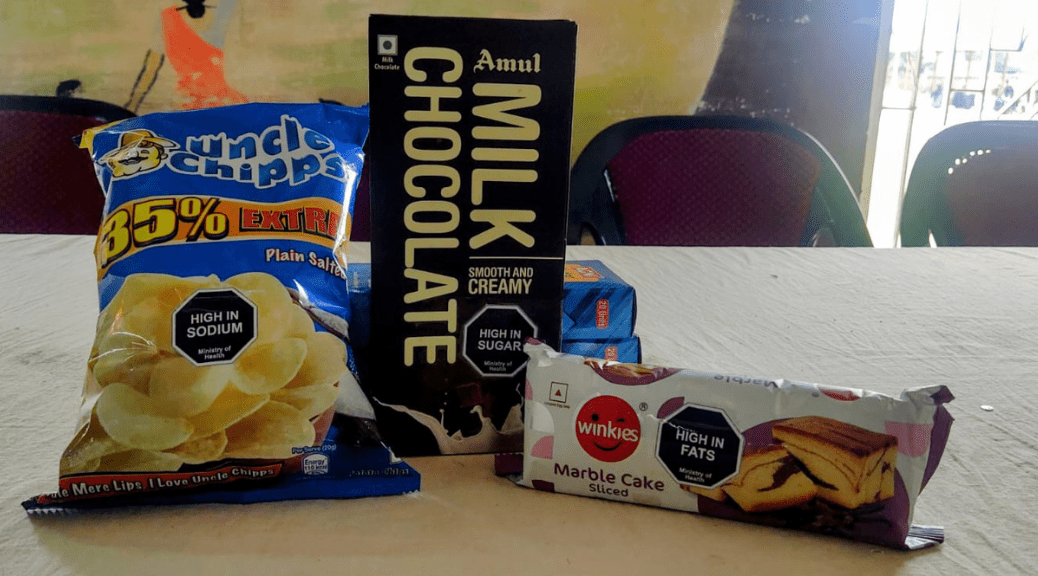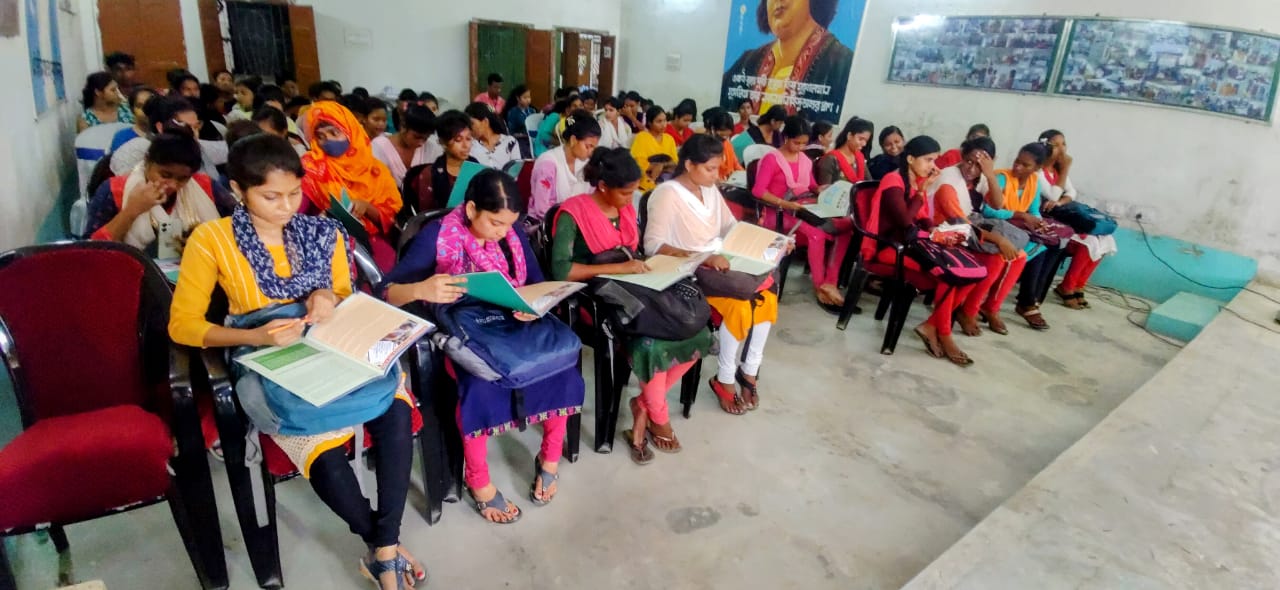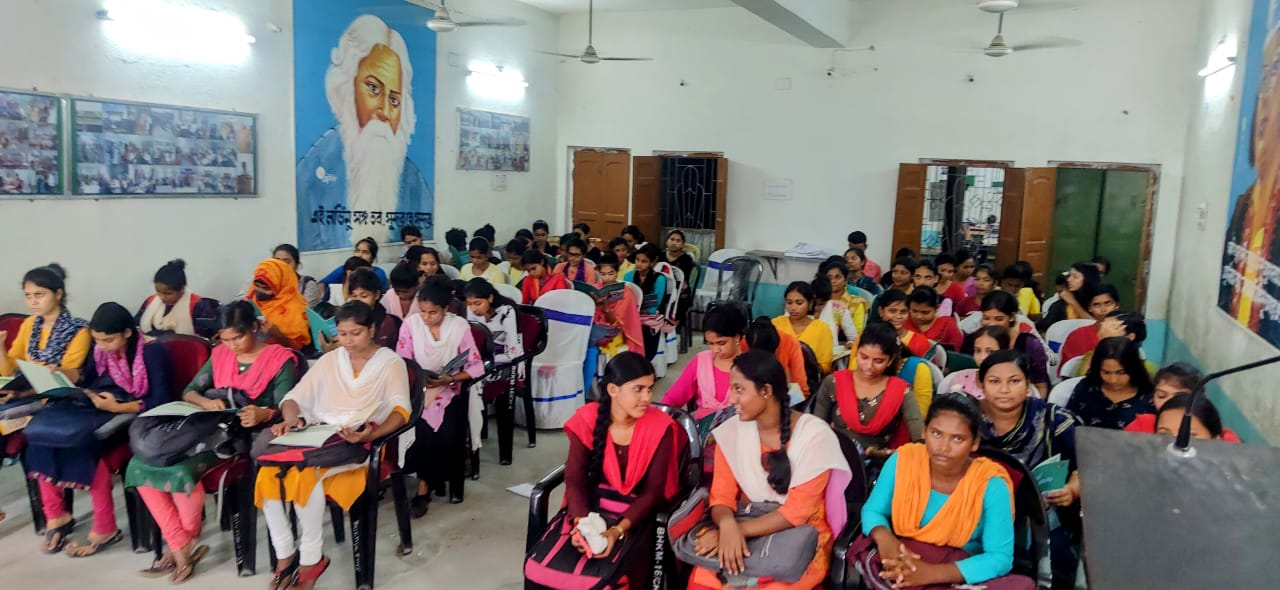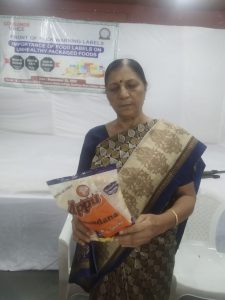
Food Labels: Understanding them
by cv | Oct 16, 2022 | Food Labels
Food Labels: Understanding them
Food label consists of necessary information about the total amount of product contained in a packet, its composition and ingredients. It also informs us about the quality, origin, processing and preservation. The information on food labels is intended to help consumers become savvy about their food choices. The front, back, and sides of a package are filled with information as to what the food contains, and also provides guidance in making healthier selections of processed foods.
Why is Food labelling so important?
Food labels provide an insight into the composition of your food. It lets us know the amount of vitamins, minerals, calories, fats, etc. in a standard serving This information is essential in ensuring that you are eating the kinds of food that are good for you.
Understanding the Nutrition Facts label on food items can help you make healthier choices. The label breaks down the amount of calories, carbs, fat, fibre, protein, and vitamins per serving of the food, making it easier to compare the nutrition of similar products.
Food labels will help you monitor your salt and sugar intakes and make sure that you are eating a healthy diet. You can monitor calories, saturated fats and your intake of micronutrients which will help you in avoiding deficiencies like iron and Vitamin D.
Reading food labels can help you understand what you are eating and keep unhealthy food at bay. Non-communicable diseases (NCDs) are also a major challenge rooted on overweight, obesity and unhealthy diets. NCDs include cardiovascular and chronic respiratory diseases, cancers, and diabetes, etc. There are increasing research evidences suggesting unbalanced/ unhealthy diets and obesity as the major risk factors in the prevalence of NCDs.
Important Details to Remember
- Baked products and processed foods generally contain fat that contributes to total calorie intake. If you want to limit your fat intake, pick foods that contain small amounts of total fat.
- Trans fats, present in foods such as cookies and chips, can increase risk of heart attack and stroke by increasing levels of low-density lipoproteins or LDL. Avoid foods that contain Trans fats or limit its intake.
- Cholesterol and saturated fats can increase your risk of heart disease. Choose foods in which cholesterol and saturated fats are absent or present in small amounts.
- Check the nutrition facts panel to reduce your intake of salt, a nutrient that can cause high blood pressure. You can often find large quantities of salt in processed and canned foods. Read food labels while shopping and only buy foods that contain little or no salt.
- A quick glance at the ingredient list can help you choose healthy foods. If you are diabetic, look into the total carbohydrates, dietary fibre and calories present. Selecting products with higher fibre, lower sugar and sodium contents can help you keep your diabetes in check. Also, make sure to avoid salted snacks and processed foods.
How can NCDs be lessened?
Cutting back on salt and sugar are two simple ways to reduce your risk of non-communicable diseases like diabetes, heart disease and cancer. It is generally advised to limit one’s salt intake to 5 grams or 1 teaspoon per day. World Health Organization (WHO) has also warned against using salty sauces and condiments like soy and fish sauce. More than 50 grams or 12 teaspoons of sugar per day is also not advisable.
- One of the ways to reduce the risk of developing NCDs such as hypertension, stroke and heart disease is to monitor and control intake of fats, specifically that of saturated fats. To achieve this, the WHO has advised to use low-fat milk and dairy products.
- Further, white meats like poultry and fish should be preferred over the consumption of processed meats, such as bacon and sausages.
- The WHO also alerted to avoid processed, baked and fried foods to lessen the chances of NCDs and to stay healthy.
- The WHO also suggests that you consume wholegrains like brown rice and wheat, legumes like lentils and beans, plenty of fresh fruits and vegetables, and some foods from animal sources like meat, fish, eggs and milk, in your day to day life.
- For snacks, you can choose raw vegetables, fresh fruits and unsalted nuts.
All in all, the importance of food labels cannot be ignored. Keeping an eye out on what you are eating is the key to good health and wellbeing.
References
- https://eatrightindia.gov.in/how-to-read-label.jsp
- https://www.indiafilings.com/learn/food-labelling-regulations-in-india/
- https://www.gqindia.com/get-smart/content/how-to-read-a-food-nutrition-label-correctly
- https://poshan.outlookindia.com/story/why-food-labels-need-to-be-upfront-useful-and-understandable/357021
- https://www.ncbi.nlm.nih.gov/pmc/articles/PMC7787030/#:~:text=As%20advocated%20by%20World%20Health,prevention%20and%20control%20of%20NCDs.
- https://www.bmj.com/content/364/bmj.l296
- https://www.karger.com/Article/Pdf/452379




